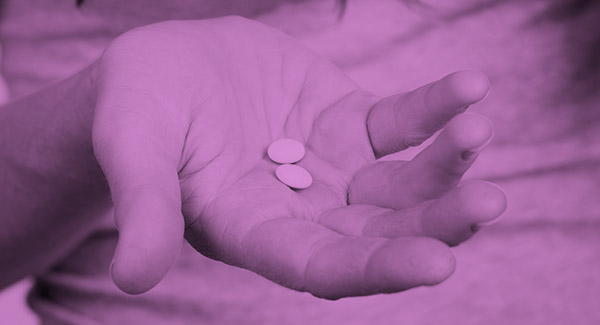Do You Need Gout Drugs?
Some doctors disagree about prescribing drugs to lower uric acid for this painful form of inflammatory arthritis.
By Linda Rath | Updated May 21, 2022
Drugs that lower blood levels of uric acid are used to treat gout, which in some people can cause flares characterized by extreme pain, joint inflammation, redness and swelling. The American College of Rheumatology (ACR) guidelines recommend a uric acid-lowering medicine for patients who have had more than one gout attack in a year and for those with certain complicating conditions, such as kidney disease.
After a study found that one uric-acid lowering medication, febuxostat (Uloric), has a higher risk of death than rival gout medicine allopurinol (Zyloprim), the Food and Drug Administration required a boxed warning on febuxostat’s label and ACR guidelines recommend the use of allopurinol for most patients who need a uric-acid lower drug.
But not all gout patients do need one. Uric-acid lowering medication is usually taken indefinitely to forestall future joint damage, kidney stones, heart disease or other problems. (The risk of heart problems is higher in all types of inflammatory arthritis, including gout, and may be associated with high uric acid, too.)
But not all medical professionals agree with this approach, including the American College of Physicians (ACP) and Germany’s Institute for Quality and Efficiency in Health Care. They point out that most people have just a few gout attacks and some never have more than one. So they advocate treating symptoms as needed — during a flare — instead of proactively with long-term drugs.
Uric Acid-Gout Link?
Robert McLean, MD, a rheumatologist with Northeast Medical Group of Yale New Haven Health and a member of ACP’s clinical guidelines committee, says uric acid metabolism isn’t as well understood as people think.
“There are many individuals who have significantly elevated [uric acid] levels, yet never have clinical episodes of gout. And it has not been shown that those individuals develop any long-term complications from uric acid deposits in their joints,” he explains.
He says people who have frequent attacks, gout-related joint damage, kidney stones or uric acid deposits (called tophi) may need uric-acid lowering medications, but they should be prescribed only “after shared decision-making takes place [between the doctor and patient] to discuss benefits, harms, costs and individual preferences.”
What About Diet?
There are conflicting ideas about diet and gout, too. Sugary drinks, alcohol, red meat and shellfish are known to trigger gout attacks, and for decades doctors have recommended avoiding them. But switching to an overall healthier way of eating may be more effective.
Hyon Choi, MD, gout expert and professor of medicine at Harvard Medical School, recommends the DASH (Dietary Approaches to Stop Hypertension) diet. It’s high in fruits, vegetables, nuts and whole grains and low in red meat, sugar and sodium. And there’s proof it works. Dr. Choi and colleagues tracked the eating habits of more than 44,000 men for 26 years. Those who most closely followed the DASH diet had a lower risk of developing gout compared to those who didn’t.
DASH, which was developed to lower high blood pressure, helps heart health, too. Dr. Choi stresses that daily exercise and weight loss are also important for lowering uric acid and reducing gout risk.
Stay in the Know. Live in the Yes.
Get involved with the arthritis community. Tell us a little about yourself and, based on your interests, you’ll receive emails packed with the latest information and resources to live your best life and connect with others.


